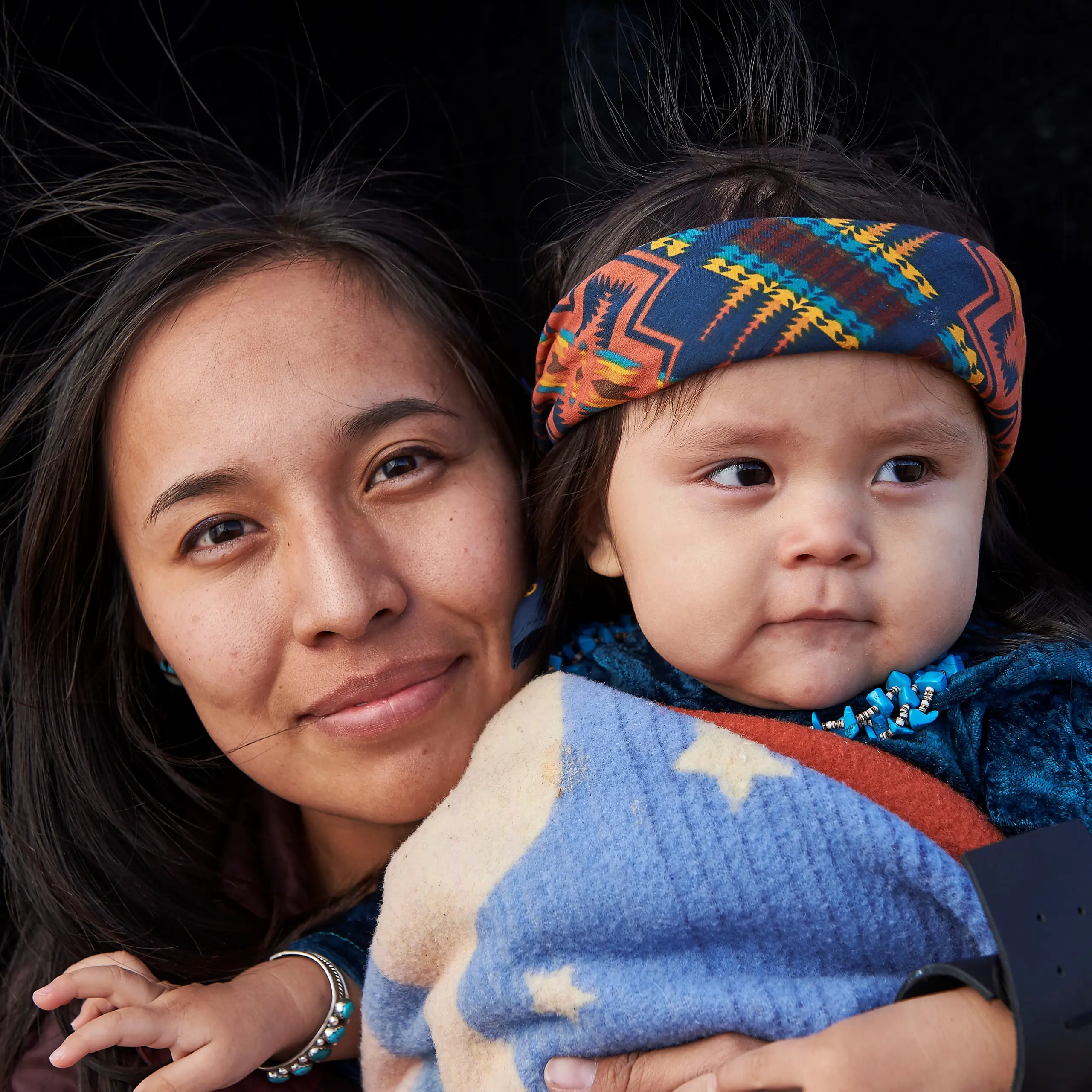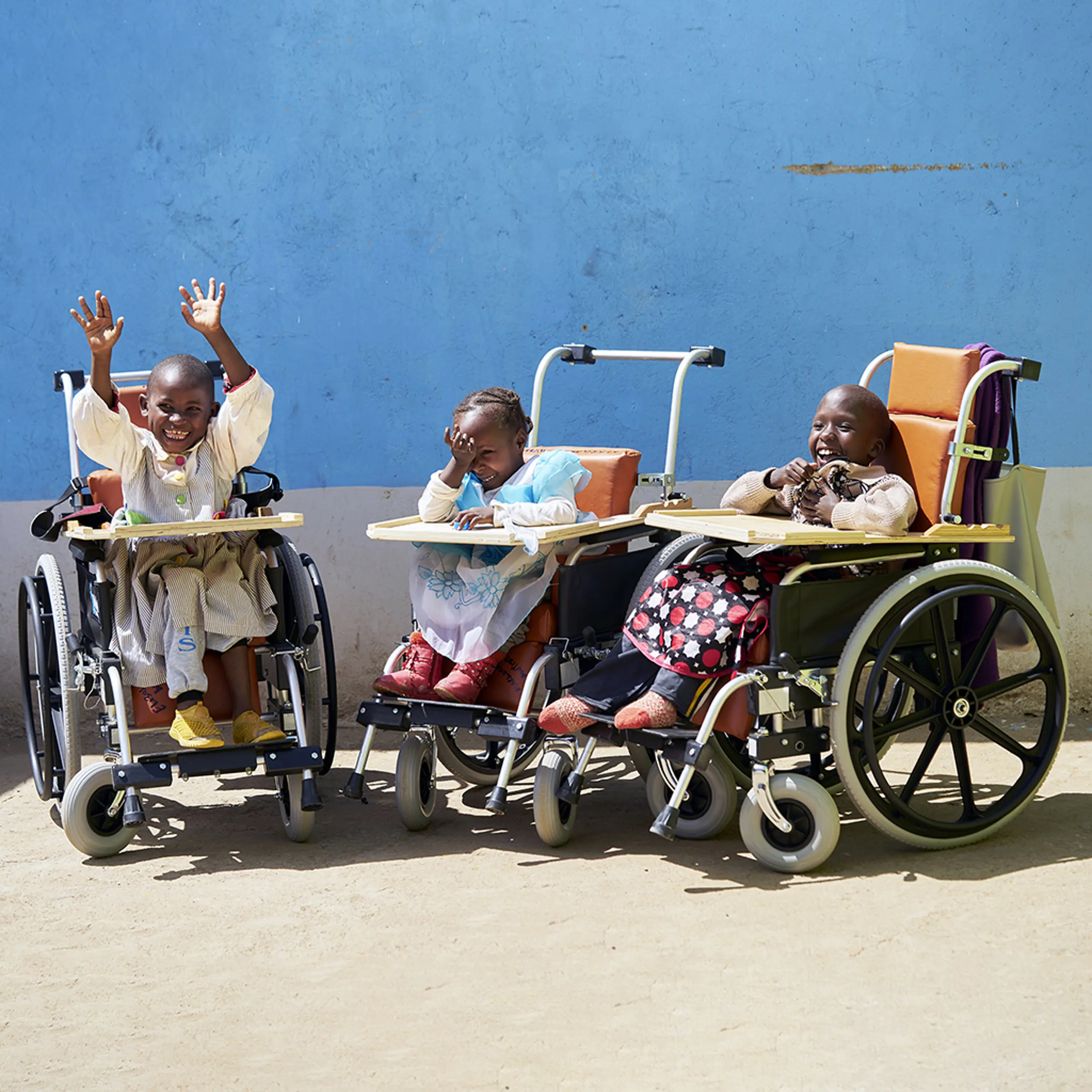Selected from over 600 applications, the LEGO Foundation’s Build a World of Play Challenge will fund five ground-breaking projects that will ensure children globally reach their full potential through play.
Access the Danish press release here
Billund, Denmark, 6 December 2022 – The LEGO Foundation has announced five recipients of its global Build a World of Play Challenge to fund bold, innovative and impactful solutions focused on early childhood. The LEGO Foundation is awarding a total of DKK 900 million (approximately US$ 117 Million) to support organisations that make substantial contributions to the lives of children from birth to six years old and spark a global movement to prioritise early childhood development.
The Build a World of Play Challenge was launched on February 16, 2022, by the LEGO Foundation to address a global early childhood emergency, characterised by a lack of access globally to quality services and supports that are needed during the critical early years of a child’s development – an emergency which has been exacerbated by the COVID-19 pandemic. The awards reaffirm the LEGO Foundation’s commitment in the LEGO® brand’s 90th year to ensure children globally are given opportunities to realise their full potential by learning through play.
Three grants of DKK 200 million (or approx. US$ 28 million) each and two grants for DKK 100 million (or approx. US$ 14 million) each were presented to the five awardees, who collectively represent organisations that will have a meaningful impact on the holistic development of young children through the power of play. The grants will help in furthering specific bold projects which promote the well-being of children, their caregivers, and their communities, using culturally relevant and sustainable approaches.
The five awardee projects are below:
- Akili Family: Localised Play-Based Learning for African Families & Communities (DKK 200 million or approx. US$ 28 million): Ubongo International will scale Akili Family, educational entertainment programmes that air in several African languages on TV, radio, and digital platforms, to support at-home learning through play for children and their caregivers.
- GogoPlay: Ecosystems of Play for Children in Rural South Africa (DKK 200 million or approx. US$ 28 million): IRD Global will build ecosystems for early childhood development in rural South Africa by upskilling women, especially grandmothers (gogos), in play and well-being within villages and co-creating centralised playhouses.
- Reclaiming Indigenous Children’s Futures through Home-Visiting and Intergenerational Playspaces(DKK 200 million or approx. US$ 28 million): Johns Hopkins Center for Indigenous Health and partners worldwide will scale culture-based home education and intergenerational play spaces for the well-being of Indigenous children and families.
- Catalysing REAL Fathers across Uganda for Early Learning and Play (DKK 100 million or approx. US$ 14 million): Impact and Innovations Development Centre and partners will teach positive parenting and non-violent discipline to reinforce positive fatherhood norms, thereby reducing violence and empowering children in Ugandan communities.
- Empowering Disabled Children to Play via Early Assistive Technology Access (DKK 100 million or approx. US$ 14 million): Clinton Health Access Initiative will empower disabled children to play and thrive, by supporting sustainable and community-led government programmes to provide early screening and life-changing assistive technology in eight countries.
Thomas Kirk Kristiansen, Chairman of the LEGO Foundation Board of Directors, said: “As part of the LEGO brand’s 90th anniversary, the LEGO Foundation made a commitment to help build a better world for young children to thrive. The Build a World of Play Challenge is designed to do just that, by funding innovative projects that make a real difference for global childhood development and give young children a better start in life. Congratulations to all the recipients, who have all demonstrated game-changing solutions. We look forward to working alongside them as long-term partners, to invest in children’s futures.”
The LEGO Foundation partnered with Lever for Change a non-profit affiliate of the John D. and Catherine T. MacArthur Foundation, to manage the Challenge process. Lever for Change connects donors with bold solutions to tackle the world’s biggest problems - including issues like racial inequity, gender inequality, lack of access to economic opportunity, and climate change.
“The LEGO Foundation’s announcement of this group of recipients signals a long-term investment in early childhood development that will pay dividends for decades to come,” added Thomas Kirk Kristiansen. “These outstanding projects are all committed to build inclusivity. They will work to reach and engage with some of the most marginalised children and communities around the world, creating conditions for all children to learn, play, and thrive during the most critical years of their lives.”
The Challenge received a total of 627 valid proposals from 86 countries, from which ten finalists were selected. Applicants were evaluated by multi-disciplinary experts from across the world based on four criteria: whether they were impactful, feasible, community-centred, and sustainable. Each of the ten finalists received approximately DKK 6 million (US$ 1 million) to strengthen their proposed plan, start building their team, and scale up to successfully implement their innovation.
The LEGO Foundation invites other donors to join their efforts, so that all ten of the top-ranked solutions can be fully funded. Donors interested in providing additional funding for this challenge should contact Dana Rice, Vice President of Philanthropy, Lever for Change at [email protected].
More details on the Build a World of Play Challenge can be found at https://learningthroughplay.com/build-a-world-of-play/the-challenge
###
Press Contacts:
Rajdeep Roy Chowdhury, Senior Advocacy 6 communication Specialist, [email protected]
Marc Moorghen, Communications Director, Lever for Change, [email protected]
The LEGO Foundation
The LEGO Foundation shares the mission of the LEGO Group: to inspire and develop the builders of tomorrow. The Foundation, which owns 25% of the LEGO Group, is dedicated to building a future in which learning through play empowers children to become creative, engaged, lifelong learners. It is through the ownership model, that a portion of profits go to funding research projects, activities and partnerships. In 2021 for example, the LEGO Foundation provided grants of DKK 2.8 billion (USD 443.9 million) to initiatives which help children reach their full potential through play. The LEGO Foundation works in collaboration with thought leaders, influencers, educators and parents aiming to re-define play, re-imagine learning and equip, inspire and activate champions for play. www.learningthroughplay.com
Lever for Change
Lever for Change connects donors with bold solutions to the world’s biggest problems—including issues like racial inequity, gender inequality, lack of access to economic opportunity, and climate change. Using an inclusive, equitable model and due diligence process, Lever for Change creates customised challenges and other tailored funding opportunities. Top-ranked teams and challenge finalists become members of the Bold Solutions Network—a growing global network that helps secure additional funding, amplify members’ impact, and accelerate social change. Founded in 2019 as a non-profit affiliate of the John D. and Catherine T. MacArthur Foundation, Lever for Change has influenced over $1 billion in grants to date and provided support to more than 145 organisations. To learn more, visit www.leverforchange.org.
Note to the Editor
Children’s potential in the first six years of life is vast. Very young brains form more than a million neural connections a second. That’s an extraordinary pace they’ll never repeat again.
Every experience: from the bond children form with parents and caregivers, to the food they eat or the way they learn and play builds children’s brains and immune and metabolic systems. In turn, it shapes the lives they’ll grow up to live.
There’s a critical window to give children the best start. While the brain keeps growing and maturing, the speed at which it does shrinks past the age of six. Yet children under six are often forgotten in national plans, despite the knock-on effect this has on a country’s health and wealth.
It’s time to shift systems so children, families, and communities flourish. If we work together, we can build safe, nurturing, stimulating, and playful environments to support our youngest children’s well-being and holistic development. And we can help communities and entire countries thrive.
The world knows so much about those crucial early years in a child’s life yet invests so little to protect them. These five awardees will be working to change that.

